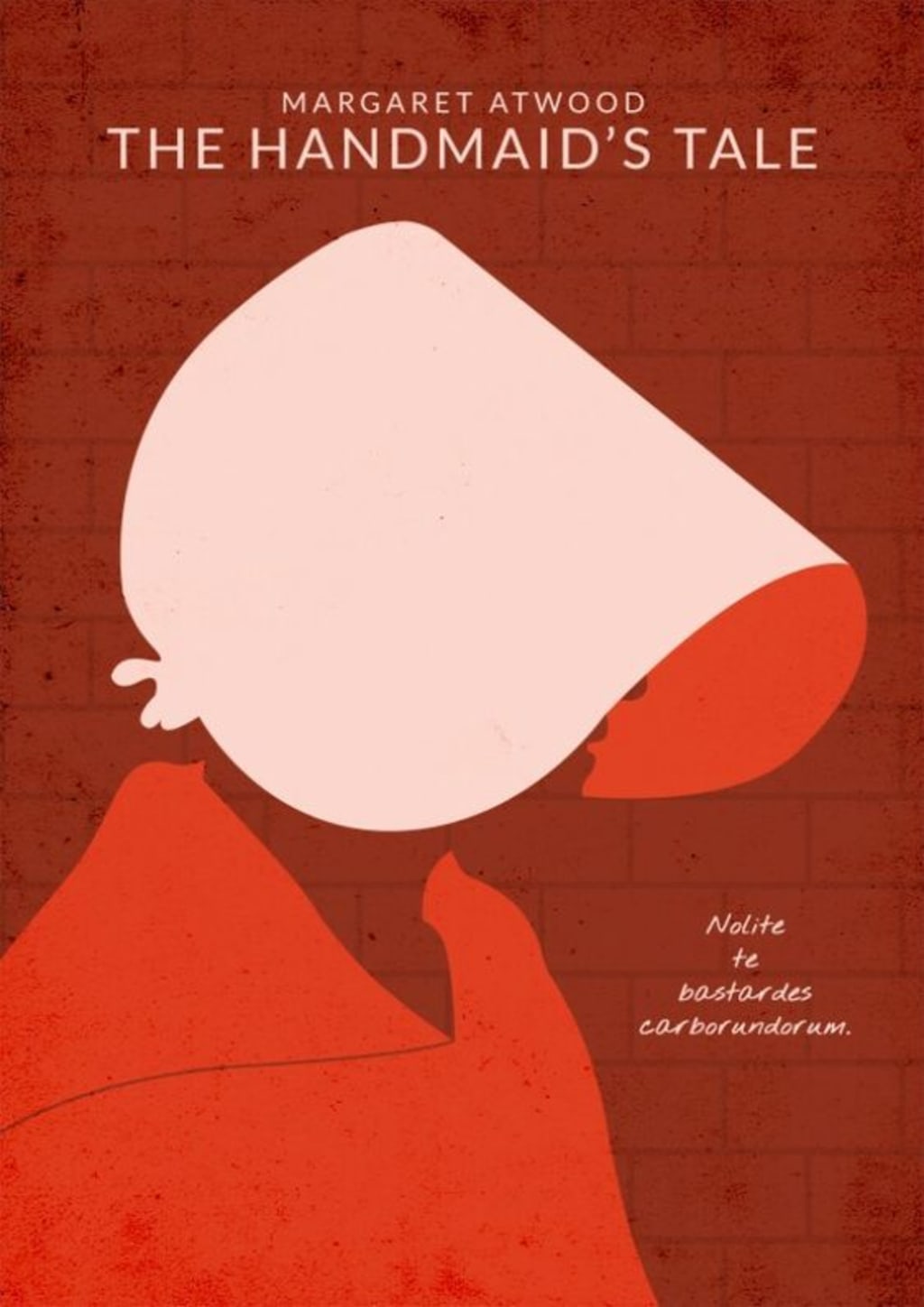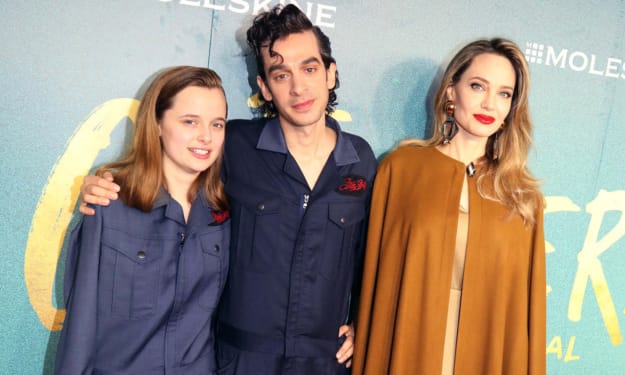The Handmaid's Tale - Margaret Atwood
Book Review

"We learned to lip-read, our heads flat on the beds, turned sideways, watching each other's mouths. In this way we exchanged names, from bed to bed:
Alma. Janine. Dolores. Moira. June."
The Handmaid's Tale follows a Handmaid named Ofglen in a primarily mysoginistic society, where women have had their rights taken away from them. Ofglen leads a life solely for childbirth, which is only for the benefit of her commander and his wife. She speaks of the 'time before', seemingly only 10-15 years before the book was set, and explains a lot about how the society that she now lives in was formed; her husband, child, job and entire life having been taken away from her. Follow as she discovers herself and keeps her humanity, not to only oppose the regime she had been pushed into, but to in turn to find a little compassion in the dull, repetitive life she finds herself leading.
The Handmaid's Tale was unique in that it was cleverly told from the point of view of a female after women's rights had been given to, then abruptly taken away from, females across Gilead. We also got an in look into the lives of women of all different occupations besides the handmaids'; wives, aunts, econo-wives, unwomen, marthas and jezebels. Although we are following in the primary perpective of a handmaid, Atwood does a brilliant job in painting a broad picture of how the society works as a whole in Gilliad, setting it in a familiar time, shown explicitly when tourists visit in chapter 5. Atwood successfully reaches her audience in enforcing a lack of modern security, she fabricates characters that could be us or people we love, and countries that could be our own. This makes The Handmaid's Tale successful in starting discussions on feminism and abuse of power present in today’s societies, fulfilling its dystopian trope.
From the point of view of someone who likes to read a lot and finds great escapism in the worlds that books provide, I did not feel as much immersed in the story line as initially I wanted to be. even though the novel was written to divert people's attention in a chilling and realistic manner, to a country that could be next door to our own, I almost felt entirely cut away from the. This flaw however, in a way, pushed for me to think about the meaning of the characters being so cut off. Due to women of the novel’s world being so put down, from start to finish, I felt a distance from the characters that personally made The Handmaid’s Tale a difficult book to finish.
In all honesty, after reading the masterpiece that was Orwell's 1984, I expected great things for this novel, and other novels in the Dystopia genre. Dystopia began as a popular genre in Young adult fiction for a long time, which suited in introducing people of my age to appreciate the extremities at which the novels of this genre flung to. By this I don't mean that my expectations were not met, because they were with Atwood's novel, but I felt a strong dissatisfaction when I finished the book. I think that, maybe having read 1984, my expectations for every other dystopian piece of fiction had been shot through the roof, and due to The Handmaid's Tale being of a similar calibre, I wanted it to be amazing! The reality was, however, that the nature of this book was very different and didn't live up to those expectations. This, however, does not falter the fact that I rate The Handmaid's Tale highly and would recommend it with everything I have as a great work of literature that explores ever-relevant themes.
To conclude, my opinions and ideas are very much personal, and this book has been highly acclaimed, the sequel The Testaments also proving to be a large success and punching a large dent in how the public views dystopian fiction.
3 stars out of 5!
About the Creator
Kothar Aljanabi
I try to share my love and opinions of books I read! Join me on my reading journey!!






Comments
There are no comments for this story
Be the first to respond and start the conversation.